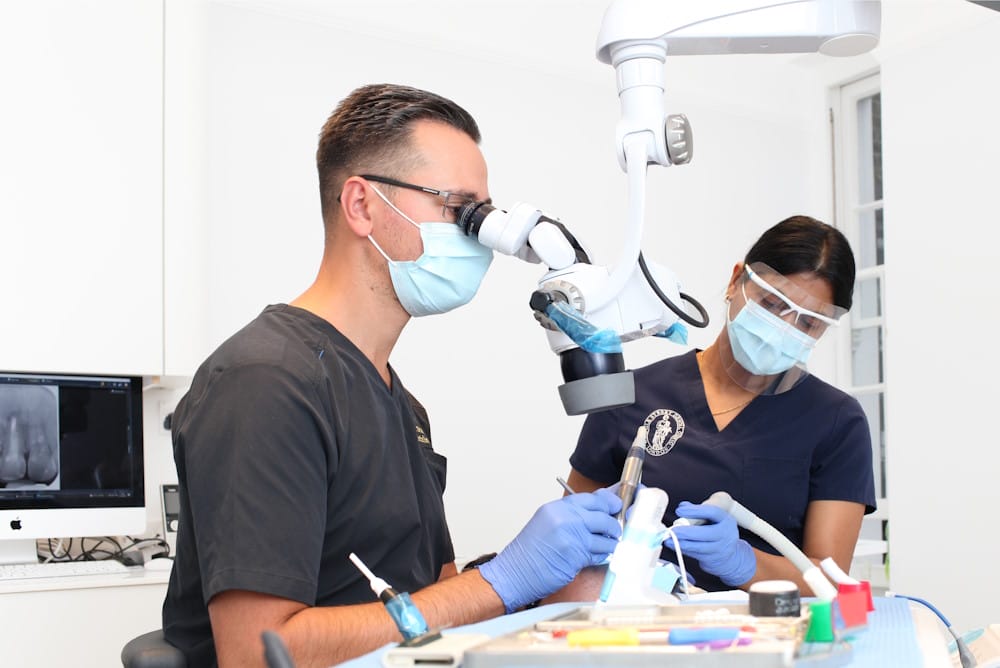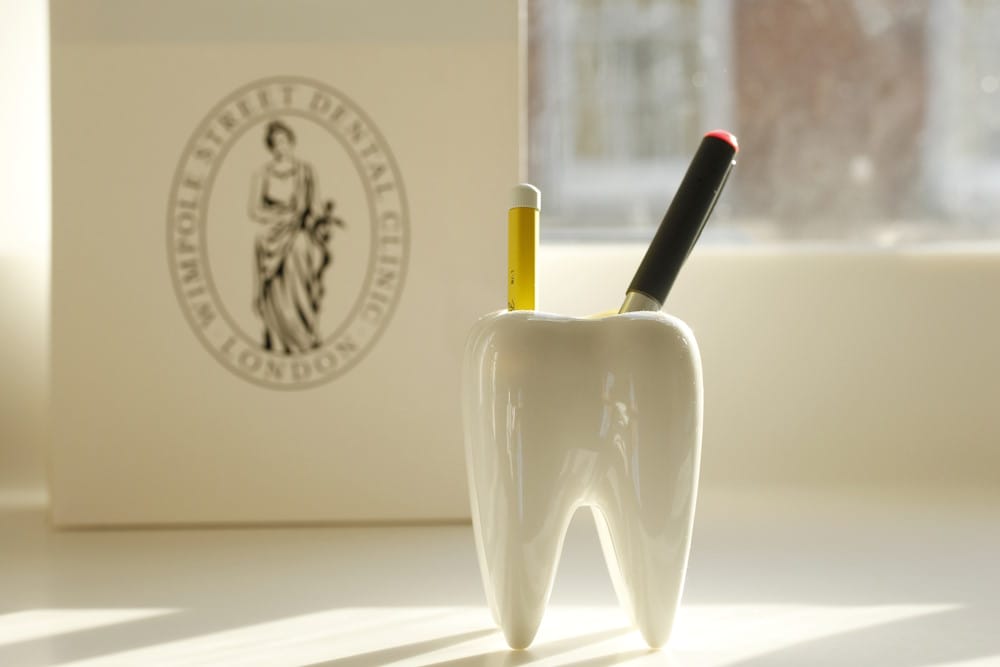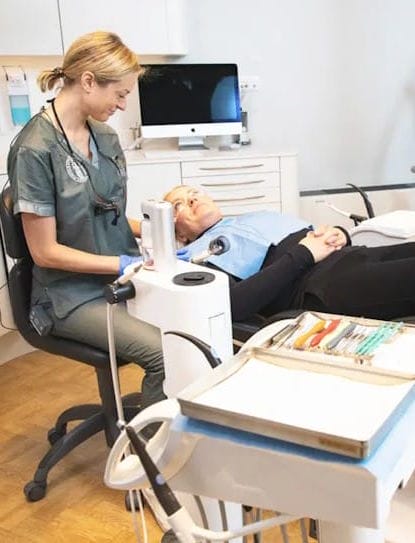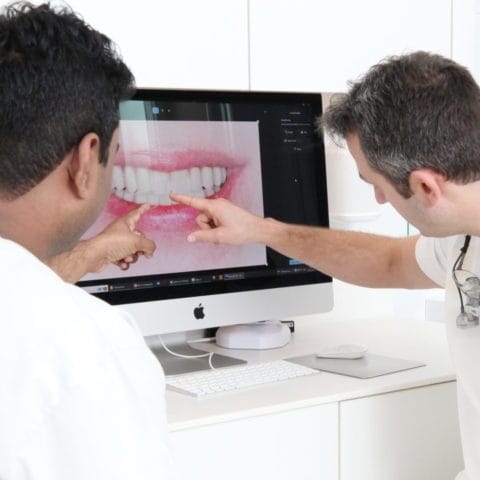Dental Hygiene in London

Treatment
45-60 minutes

Price
From £180

Team Experience
25+ years

Recovery Time
None

Google Rating
★★★★★ (4.9)
Examples of our work
A consistent dental hygiene routine is the foundation of a healthy smile. At Wimpole Street Dental Clinic, our dental hygiene case studies showcase the transformative impact of thorough, tailored hygiene treatments. From managing gum disease to enhancing overall oral health, each case reflects our commitment to preventive care, empowering patients to achieve lasting results and maintain optimal dental wellness.

Preventing tooth damage through Prophylaxis
At Wimpole Street Dental Clinic in London, we focus on preventative dental care with regular check-ups by specialised dentists and dental hygienists. Our motto is “Prevent rather than cure!”
A lovely smile can be captivating – having clean, healthy teeth looks and feels great – and our aim is to achieve long-term dental health in partnership with you. We invest in ongoing training for our preventative care department to provide you with the best possible services. This includes professional teeth cleaning in our London clinic, as well as additional options for optimal preventative care to preserve your natural teeth. Our lead dental hygienist and business owner, Mrs Jennifer Boardman, prioritises tailored treatments and personalised prophylaxis plans. She has achieved the highest grades at the prestigious Eastman Dental Institute at the University College London and finished her three-year studies with distinction.
Why is it crucial to visit a dental hygienist to maintain healthy teeth?
To maintain healthy teeth and a strong bite as you age, regular dental cleanings are essential. Despite thorough home care, some areas of teeth are hard to reach, allowing harmful bacteria to grow. Even regular flossing may not prevent plaque build-up and potential disease. For a deep cleaning, visit our dental clinic in London.
Regular professional teeth cleaning also targets gaps between teeth and effectively eliminates tartar. The process is typically painless, allowing patients to unwind in the skilled care of our hygiene team. Following the treatment, you will depart our clinic with visibly cleaner and brighter teeth. Our London experts can advise you on enhancing your home brushing routine and identifying areas of your teeth that are prone to plaque.
Regular checkups with a dental therapist and professional teeth cleaning not only protect you from costly dental repairs, but also from dangerous systemic diseases. Oral health sciences are now unanimous that untreated periodontitis increases the risk of serious systemic diseases such as diabetes, cardiovascular disease, or pregnancy complications. Professional teeth cleaning with us in London, therefore contributes to maintaining both dental and general health.
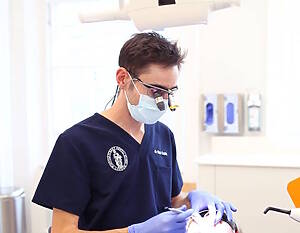


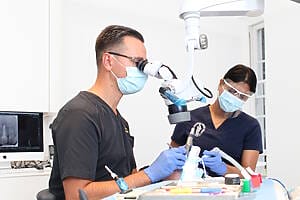



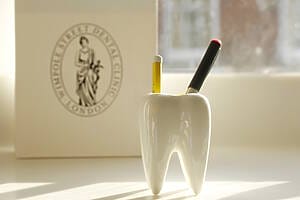
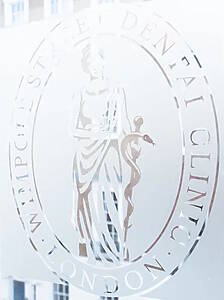
How does dental hygiene treatment work at our London practice
Professional teeth cleaning is performed exclusively by our specialized staff. For all of our hygiene appointments, we use a technique called Guided Biofilm Therapy (GBT), and we have been one of the first adopters here in the United Kingdom. GBT is a modern and evidence-based approach to dental hygiene focused on effectively removing biofilm without damaging the tooth surfaces. GBT uses a combination of advanced technology, specialised instruments, and minimally invasive techniques to clean teeth more efficiently and comfortably than traditional methods.
It is very effective in both routine cleanings and in managing serious conditions like periodontal disease. Initially, we reveal all the bacteria and biofilm present and have a conversation with you about the most effective brushing method. Using the EMS water/glycerin solution, we clean your natural or restored teeth effectively. Especially for implant-supported restorations or dental implants underneath dentures, we can use this powder jet technology (Air-Flow®) as it gently removes plaque and discolouration without damaging the ceramic. If any tough tartar remains, we employ ultrasound for its removal. A subsequent high-gloss polish and fluoridation ensure a radiant smile.
We ensure your teeth and gums are not harmed during cleaning and frequently check for any discomfort. Our skilled dental hygienist can slightly whiten your teeth during a professional cleaning. For a more noticeable whitening, additional tooth whitening can be done in a second appointment.
What happens precisely during a dental hygiene appointment using the Guided Biofilm Therapy?
Our GBT hygiene sessions have essentially 3 steps:
- The first step is using a disclosing solution to highlight biofilm on the teeth and gums. This colouring reveals areas that need more attention and helps the hygienist educate the patient.
- Air Polishing with Erythritol Powder (AirFlow ) – Instead of traditional polishing pastes, we use a fine powder in an air polishing device. This powder is gentle on the teeth and highly effective in removing biofilm, even in hard-to-reach areas like between teeth and around orthodontic appliances. The air polishing process is much more comfortable for patients, especially those with sensitive teeth or gums.
- Gentle Ultrasonic Scaling –After air polishing, we then use the best ultrasonic devices to remove any remaining hard deposits, like tartar. Our advanced ultrasonic scalers are designed to work with minimal force, ensuring no harm is done to teeth surfaces and minimising discomfort.
This method not only makes cleanings less uncomfortable but also enhances accuracy, helping patients understand and target areas needing extra care in their daily oral hygiene routines. GBT ultimately supports long-term oral health by managing biofilm more precisely and gently than traditional methods.

In our dental practice, advice on oral hygiene and correct nutrition for disease prevention is at the core of what we do.
Enhanced oral healthcare and better eating habits can help maintain the appearance of your teeth and gums. In London, our professional team will recommend appropriate oral hygiene products and explain their proper use for home care during your dental cleaning. We will instruct you on plaque removal techniques, recommend the most suitable toothbrush, and provide guidance on using interdental brushes and dental floss. We are always on hand to answer any queries you may have.
Meet your award-winning Dental Hygienist …
- We have over 75+ years of combined dentistry experience across our specialist team.
- 10,000+ treatments performed and counting.
- We are leaders in the dental industry – we regularly teach, lecture and publish our research work internationally.
Our Hygienists
At Wimpole Street Dental Clinic, the hygienists exemplify excellence in preventive dental care. Jennifer Boardman, the clinic’s lead hygienist and co-owner, graduated with distinction from the Eastman Dental Institute and is renowned for her meticulous deep cleans and patient education on oral hygiene. Epi Mabika, with over 20 years of experience, holds dual qualifications in Dental Hygiene and Therapy from Queen Mary University and The Royal London Hospital. She is celebrated for her gentle approach and dedication to patient empowerment. Together, they utilise advanced techniques like Guided Biofilm Therapy to ensure optimal oral health for their patients.
Our Expertise
We are dedicated to helping our patients maintain excellent oral health for life. The long-term success of any dental treatment depends on how well patients can care for it, which is why routine dental hygiene sessions are a cornerstone of our approach.
Our prevention team, including our skilled dental hygienists, regularly attends professional development courses to stay updated with the latest knowledge, techniques, and advice, ensuring we provide the highest level of care to every patient.
We offer EMS air-flow technology during a dental hygiene appointment with us, which is based on innovative technology that comfortably removes plaque and discolourations from your teeth as an alternative to other teeth whitening methods. The high gloss polishing fluoridation which follows can provide you with the restoration of a radiant smile.
Who is suitable for dental hygiene?
Our team would encourage all our dental patients to make an appointment with our dental hygienist to discuss their individual needs regarding a regular schedule of professional teeth cleaning.
Optimum dental hygiene is the best tool to equip yourself with when looking to achieve preventative care of your teeth and gums to safeguard your smile for years to come as well as protect against oral issues such as excessive tooth decay, infection, gum disease and bad breath.
Our small collection of videos about the proper way to brush teeth and improve your gum health.
Professional teeth cleaning at our practice is vital for dental health. Good dental care is crucial for maintaining natural teeth, implants, or dentures. Watch our video series for helpful tips on dental hygiene. Enjoy!



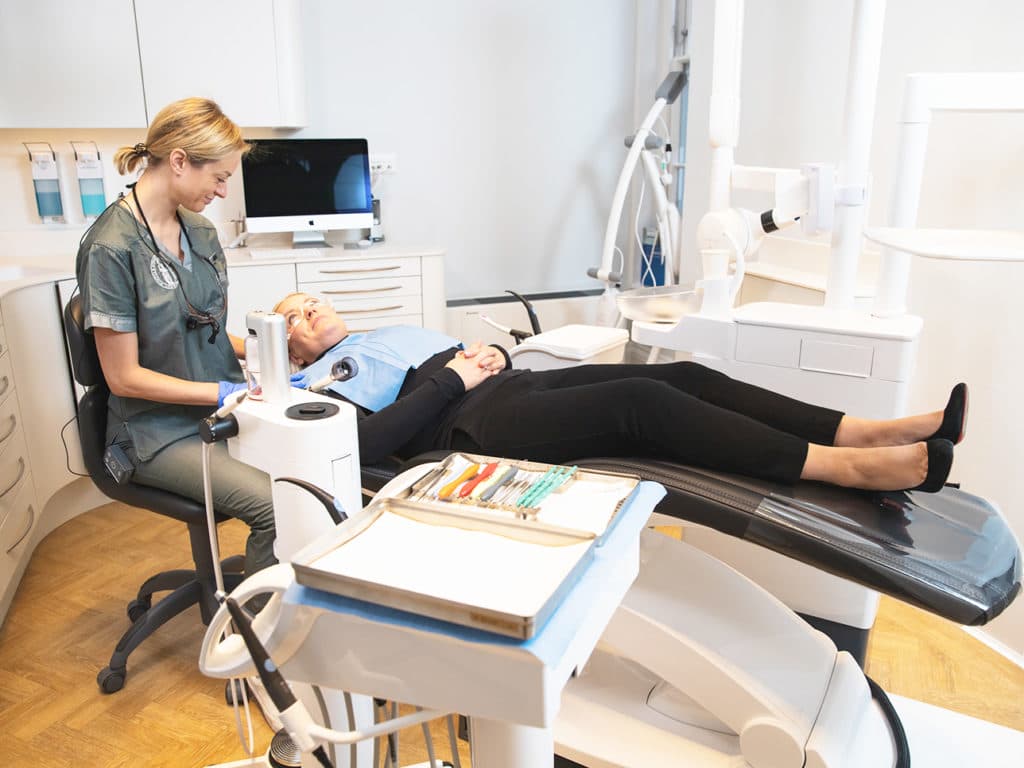
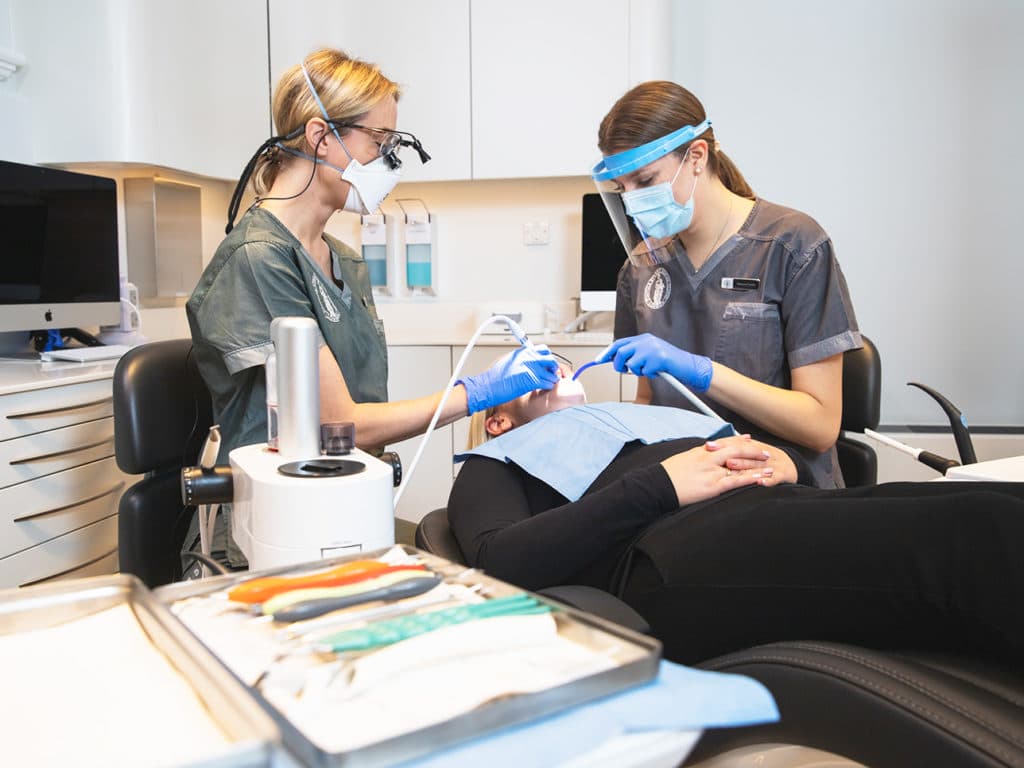
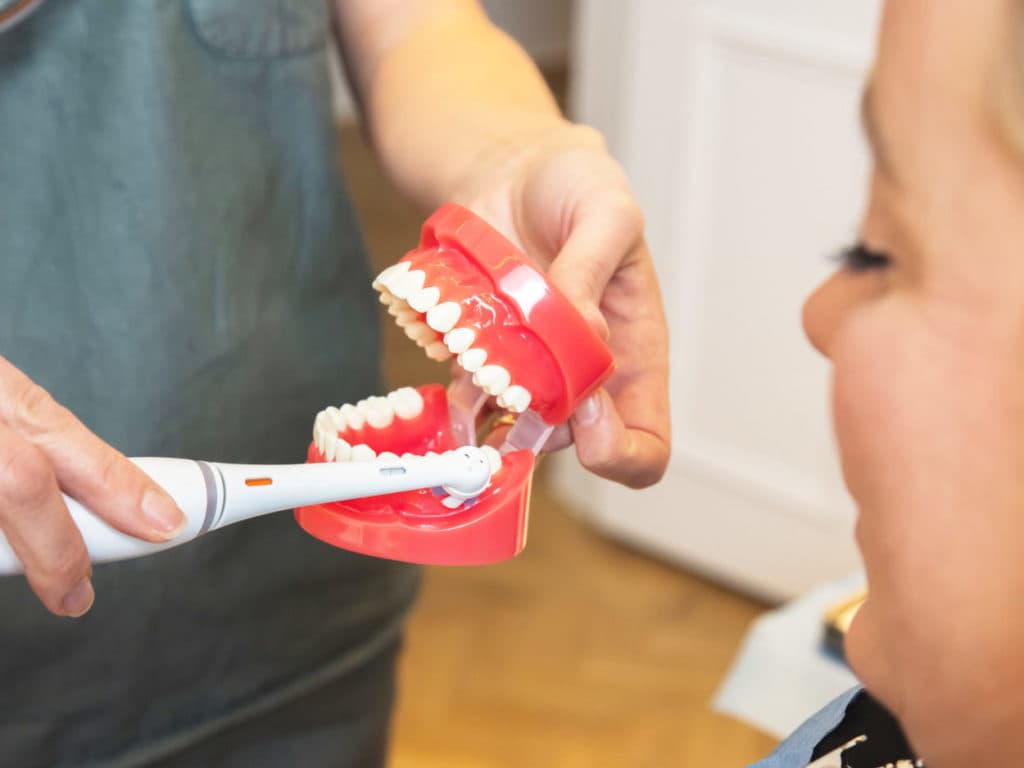


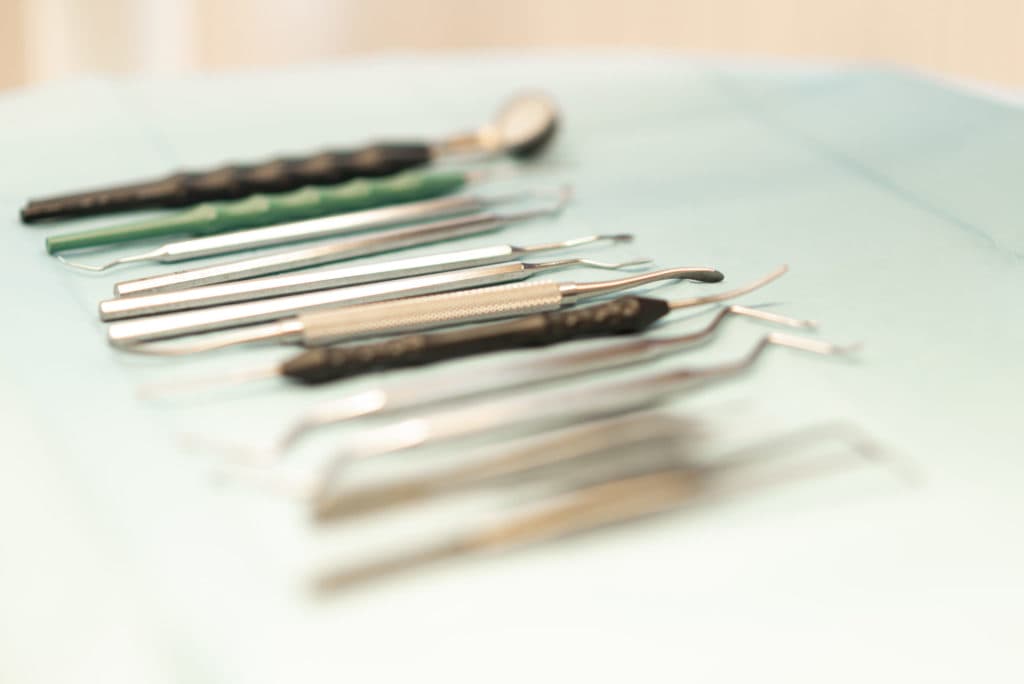


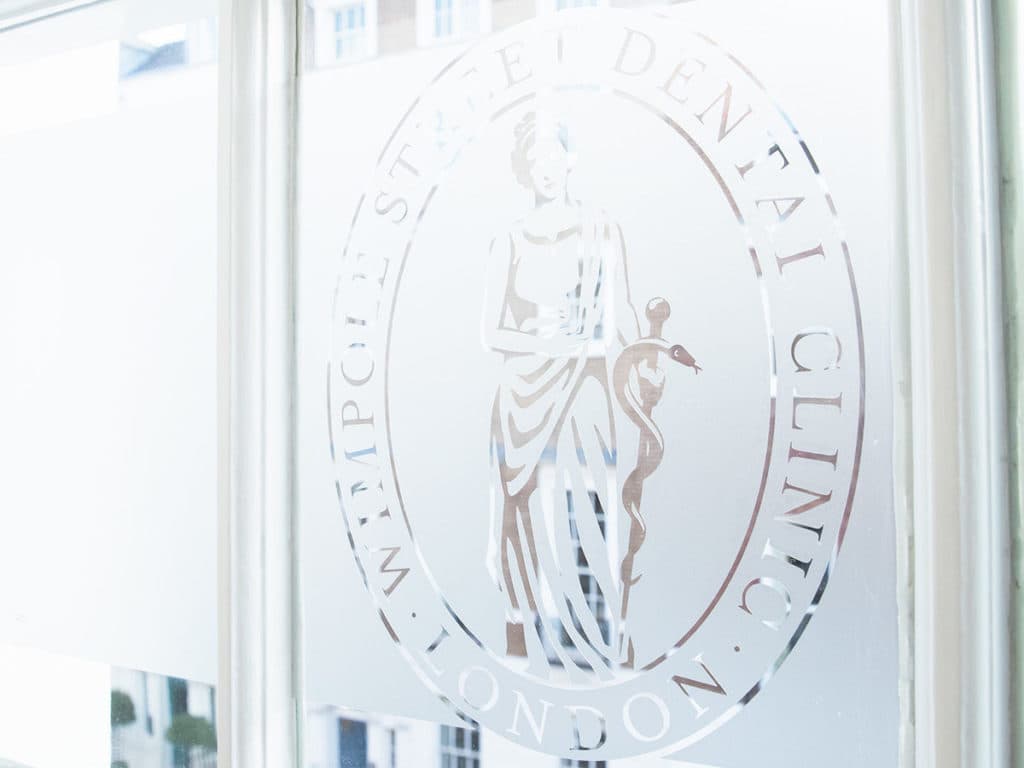
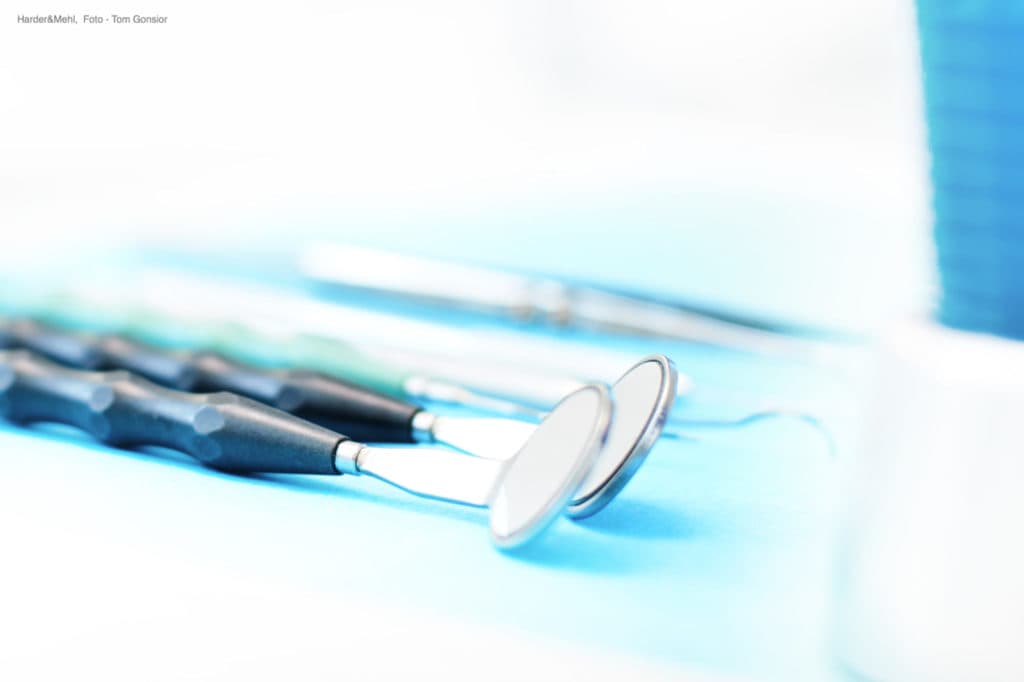


Clinical content update
Written by: Prof Dr Christian Mehl
Medically reviewed by: Dr Raul Costa
New page design
Written by: Prof Dr Christian Mehl
Medically reviewed by: Dr Raul Costa
Author biography added
Written by: Prof Dr Christian Mehl
Medically reviewed by: Dr Raul Costa
Original content created
Written by: Prof Dr Christian Mehl
Medically reviewed by: Dr Raul Costa
Wimpole St Dental Clinic has strict sourcing guidelines and relies on peer-reviewed studies, academic research institutions, and medical associations. We avoid using tertiary references. You can learn more about how we ensure our content is accurate and current by reading our editorial policy.
- Jongbloed-Zoet C. The role of the dental hygienist in promoting oral health. Int J Dent Hyg. 2020 May;18(2):127. doi: 10.1111/idh.12436. PMID: 32303122.
- Dunning JM. The future of the dental hygienist. J Public Health Dent. 1990 Winter;50(1):3-4. doi: 10.1111/j.1752-7325.1990.tb03546.x. PMID: 2296000.
- Aker DS, Zaki HA. The dental hygienist as a preventodontist. J Am Dent Assoc. 1972 Jan;84(1):140-2. doi: 10.14219/jada.archive.1972.0018. PMID: 4500212.








